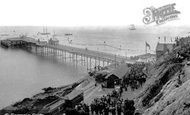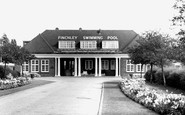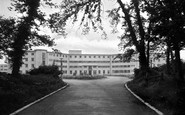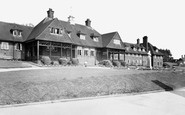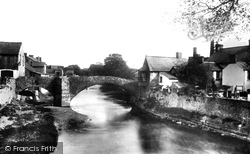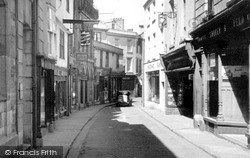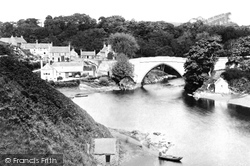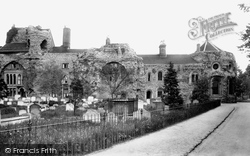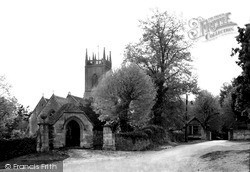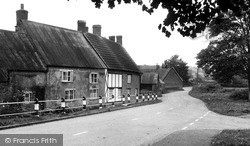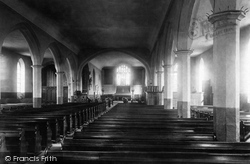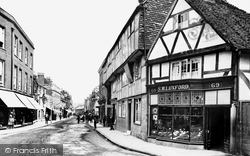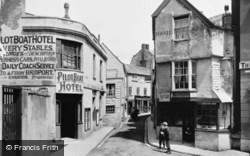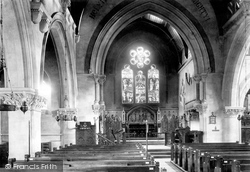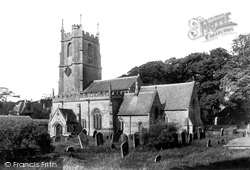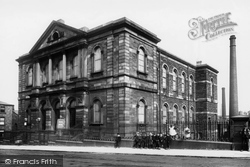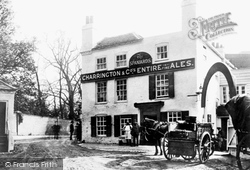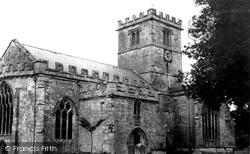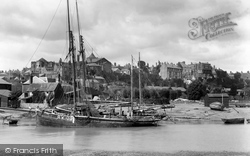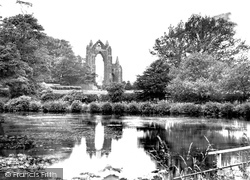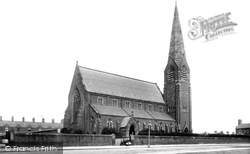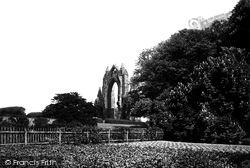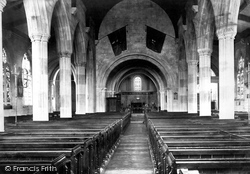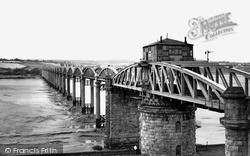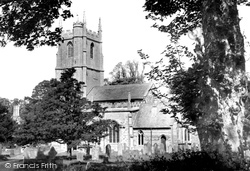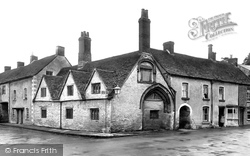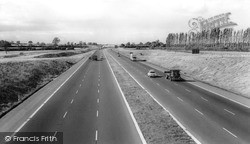Places
Sorry, no places were found that related to your search.
Photos
5 photos found. Showing results 561 to 5.
Maps
83 maps found.
Books
Sorry, no books were found that related to your search.
Memories
1,127 memories found. Showing results 281 to 290.
Summer Of '76
My friend Sue and I worked as waitresses at the Runnacleve during July and August of that hot summer whilst on holiday from catering college. Not that we saw much of the sun! We served breakfast, lunch and dinner with short breaks in ...Read more
A memory of Ilfracombe in 1976 by
Summer Memories Of Picktree Village
In the late 1950’s and as a young boy around 8 or 9 living in the west end of Newcastle, I used to visit my Auntie Bella and Uncle Ted regularly. They lived at Number 3 Picktree Cottages, a short row of picturesque cottages ...Read more
A memory of Picktree by
Summer Holidays
I was born in 1948 and my Grandma lived at Brook Bridge House in Kilby. I can remember hating living in Industrial Huddersfield but only because I could not wait to get to Kilby for my weeks holiday in the summer. There was a farm in the ...Read more
A memory of Kilby by
Summer Holidays At Tyn Y Morfa
In the early 60s we used to travel to Talacre for a fortnight holiday in a caravan. One year my parents didn't pre-book but we travelled from Liverpool on the off chance we would find a place. I remember my father ...Read more
A memory of Tyn-y-Morfa by
Summer Days At Oystermouth
Memories of The Mumbles by John S. Batts Viewing on-line a collection of Frith’s old photos of The Mumbles has jogged many memories. For me the place was simply known as “Mumbles,” home to a much-treasured uncle ...Read more
A memory of Mumbles, The by
Summer Days
It was a happy childhood, I was born in Etwall in 1954 and our council house in Windmill Road is still our family home. Some of my fondest memories are the simple pleasures of life as a young lad in the 1950/60s. Always keen to get home ...Read more
A memory of Etwall in 1963 by
Summer Days
This photo brings back the - what seemed - endless summer days of the 50's and 60's when we would go with our togs and sandwiches (probably jam) in the care of an older friend and queue for tickets for the day. Our parents sometimes were ...Read more
A memory of Finchley by
Summer 1967
When I was three or four years old I visited Cawsand for a family holiday. I remember it very clearly because, for various reasons, it was the only holiday we all went on together. I am hoping someone might be able to solve an on-going ...Read more
A memory of Cawsand in 1967 by
Sully Hospital History
Just bought a flat in the converted "old" hospital (October 2007). Want to research history of Hospital. Anyone have any Memories, pictures ect please very much appreciated. jasja@msn.com
A memory of Sully by
Student Nurse Shawyer
I was a student nurse at Lord Mayor Treloars from January 1962 until January 1964. Those two years orthopaedics were affiliated with other hospitals which allowed us to start training before 18 which was the minimum age for ...Read more
A memory of Alton in 1962 by
Captions
1,233 captions found. Showing results 673 to 696.
It was partly destroyed on 21 August 1775 by a large flood - two of the original small arches were replaced by the single large span we can see here, giving it an asymmetrical appearance.
Opposite the arches and pillars of what used to be Hayman's Pianoforte Warehouse are just visible; the premises are now a gun shop.
Opposite the arches and pillars of what used to be Hayman's Pianoforte Warehouse are just visible; the premises are now a gun shop.
This single-arched stone bridge is situated a few hundred yards to the north of St Machar's Cathedral, and crosses a gorge of the River Don.
Houses had been built into the central arches of the west front by at least the 1660s. The Norman-style windows to the right date from 1863, when this wing became the Probate Registry Office.
Its arches to north, south and east are very tall too, and of Decorated style.
The railings have also been removed, leaving a much more welcoming and open view of this charming village.
Although the pews of 1876 (which replaced much earlier box pews) still survive, the majority of the interior was remodelled in a major restoration under the hand of the architect Temple Moore
Next door is the overhanging 16th-century frontage of the White Hart Inn, with its impressive arch leading into the stable yard. The hotel was closed and converted into shops in the early 1930s.
In the process it revealed Norman arches and probable remains of a chapel, as well as the underground room of a hermit, who was probably attached to Sherborne Abbey.
Inside this expansive parish church the many signs of the Early English era are manifest in the pulpit, for instance, which is inscribed and dated 1631 on a large arched panel with a good helping
St James's church is of medium size; it has Anglo-Saxon windows, and a Norman chancel arch, arcades and font.
Though a good picture of a much-missed local landmark, this photograph also gives us a hint of Burnley as an industrial town.
The semi-circular arch has gone from what is now the car park entrance, and the rather fine pub sign has also disappeared.
Its crossing tower is possibly of the 14th century; it is buttressed by simple moulded half arches at the east end of the nave.
Bodiam Bridge, completed in 1796, marked the limit of normal navigation, but its centre arch was raised sufficiently to allow river traffic to continue upstream when conditions were favourable.
Screened from the road by rhododendrons, the Monks' Pond creates a very dramatic appearance as it reflects the priory arch - a frequent inspiration over the years for artists and photographers,
The last one was recorded in 1908, and the curate of St James's Church in Blake Street, HIndpool (pictured here), with the backing of some local businessmen, provided a much-needed soup kitchen to alleviate
This unusual view shows the priory arch from the south; in the foreground are gardens which became a formal rose garden laid out for Margaret, later the first Lady Gisborough (see photograph
On entering the church, the immediate impression is of the Norman crossing, arches, chancel and east bay. The organ case is richly decorated with acanthus carving, and is late 17th-century.
Constructed of wrought iron and completed in 1879, the Severn Bridge was the longest tied-arch, bowstring truss bridge on the British railway network.
The cylindrical Norman font is stunning: it has intersected arches, big scrolls and two big serpents with twisted tails, their heads looking at a saintly bishop, who is wearing a typical Norman
The entrance to the hospital was through the medieval arched doorway.
The River Great Ouse flooded eight times in 1958- 59, hindering a viaduct construction of eight massive reinforced concrete arches.
Places (0)
Photos (5)
Memories (1127)
Books (0)
Maps (83)



